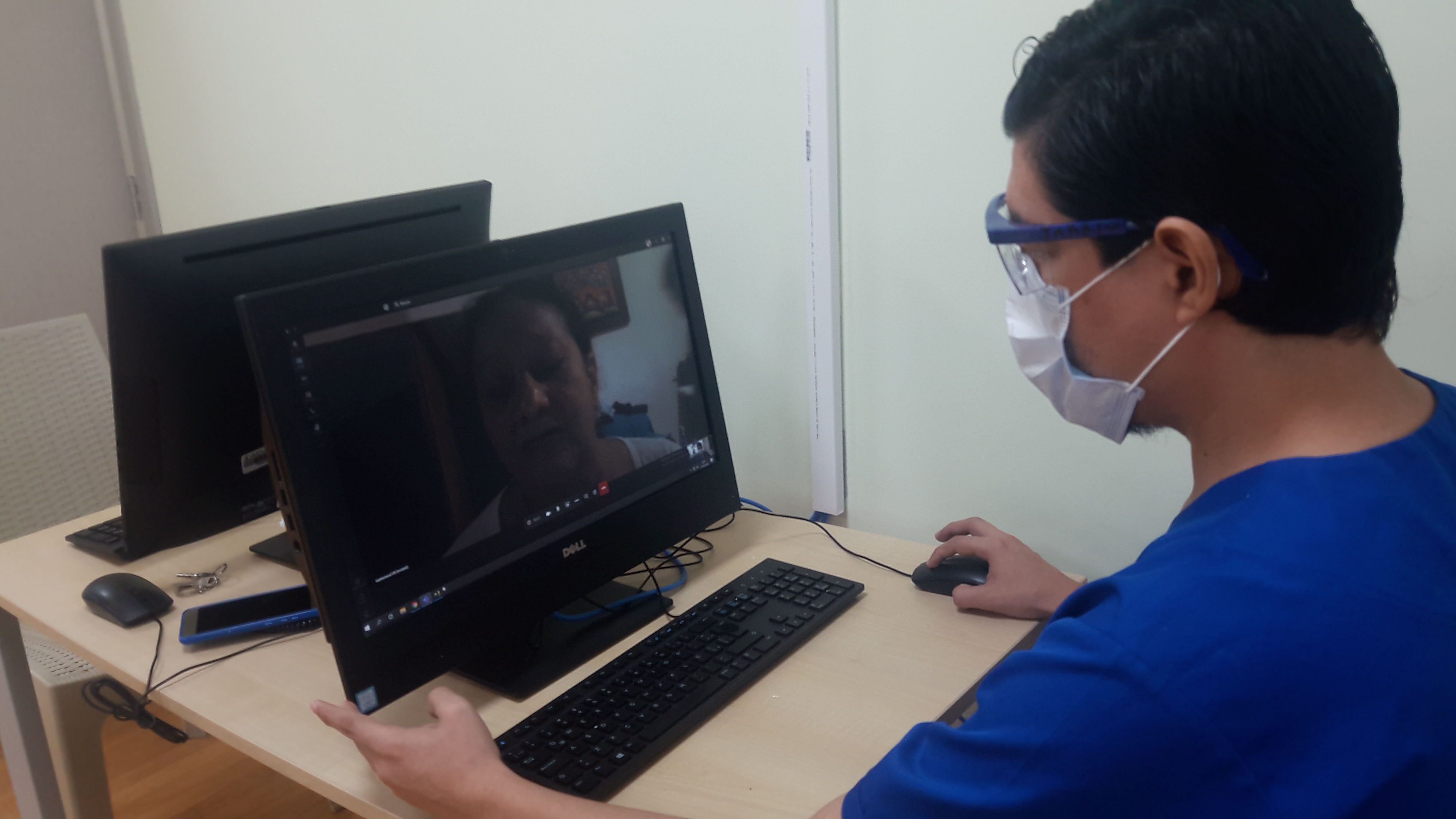|
Health Policy And Management
Health policy and management is the field relating to leadership, management, and administration of public health systems, health care systems, hospitals, and hospital networks. Health care administrators are considered health care professionals. Terminology Health policy and management or health systems management or health care systems management describes the leadership and general management of hospitals, hospital networks, and/or health care systems. In international use, the term refers to management at all levels. In the United States, management of a single institution (e.g. a hospital) is also referred to as "medical and health services management", "healthcare management" or "health administration". Health systems management ensures that specific outcomes are attained, that departments within a health facility are running smoothly, that the right people are in the right jobs, that people know what is expected of them, that resources are used efficiently and that all d ... [...More Info...] [...Related Items...] OR: [Wikipedia] [Google] [Baidu] |
Public Health
Public health is "the science and art of preventing disease, prolonging life and promoting health through the organized efforts and informed choices of society, organizations, public and private, communities and individuals". Analyzing the determinants of health of a population and the threats it faces is the basis for public health. The ''public'' can be as small as a handful of people or as large as a village or an entire city; in the case of a pandemic it may encompass several continents. The concept of ''health'' takes into account physical, psychological, and social well-being.What is the WHO definition of health? from the Preamble to the Constitution of WHO as adopted by the International Health Conference, New York, 19 June - 22 July 1946; signed on ... [...More Info...] [...Related Items...] OR: [Wikipedia] [Google] [Baidu] |
Health Care Quality
Health care quality is a level of value provided by any health care resource, as determined by some measurement. As with quality in other fields, it is an assessment of whether something is good enough and whether it is suitable for its purpose. The goal of health care is to provide medical resources of high quality to all who need them; that is, to ensure good quality of life, cure illnesses when possible, to extend life expectancy, and so on. Researchers use a variety of quality measures to attempt to determine health care quality, including counts of a therapy's reduction or lessening of diseases identified by medical diagnosis, a decrease in the number of risk factors which people have following preventive care, or a survey of health indicators in a population who are accessing certain kinds of care. Definition Health care quality is the degree to which health care services for individuals and populations increase the likelihood of desired health outcomes. Quality of care p ... [...More Info...] [...Related Items...] OR: [Wikipedia] [Google] [Baidu] |
Health Care Occupations
Health, according to the World Health Organization, is "a state of complete physical, mental and social well-being and not merely the absence of disease and infirmity".World Health Organization. (2006)''Constitution of the World Health Organization''– ''Basic Documents'', Forty-fifth edition, Supplement, October 2006. A variety of definitions have been used for different purposes over time. Health can be promoted by encouraging healthful activities, such as regular physical exercise and adequate sleep, and by reducing or avoiding unhealthful activities or situations, such as smoking or excessive stress. Some factors affecting health are due to individual choices, such as whether to engage in a high-risk behavior, while others are due to structural causes, such as whether the society is arranged in a way that makes it easier or harder for people to get necessary healthcare services. Still, other factors are beyond both individual and group choices, such as genetic disorders. ... [...More Info...] [...Related Items...] OR: [Wikipedia] [Google] [Baidu] |
Deinstitutionalisation
Deinstitutionalisation (or deinstitutionalization) is the process of replacing long-stay psychiatric hospitals with less isolated community mental health services for those diagnosed with a mental disorder or developmental disability. In the late 20th century, it led to the closure of many psychiatric hospitals, as patients were increasingly cared for at home, in halfway houses and clinics, in regular hospitals, or not at all. Deinstitutionalisation works in two ways. The first focuses on reducing the population size of mental institutions by releasing patients, shortening stays, and reducing both admissions and readmission rates. The second focuses on reforming psychiatric care to reduce (or avoid encouraging) feelings of dependency, hopelessness and other behaviors that make it hard for patients to adjust to a life outside of care. The modern deinstitutionalisation movement was made possible by the discovery of psychiatric drugs in the mid-20th century, which could manage psych ... [...More Info...] [...Related Items...] OR: [Wikipedia] [Google] [Baidu] |
Mental Disorder
A mental disorder, also referred to as a mental illness or psychiatric disorder, is a behavioral or mental pattern that causes significant distress or impairment of personal functioning. Such features may be persistent, relapsing and remitting, or occur as single episodes. Many disorders have been described, with signs and symptoms that vary widely between specific disorders. Such disorders may be diagnosed by a mental health professional, usually a clinical psychologist or psychiatrist. The causes of mental disorders are often unclear. Theories may incorporate findings from a range of fields. Mental disorders are usually defined by a combination of how a person behaves, feels, perceives, or thinks. This may be associated with particular regions or functions of the brain, often in a social context. A mental disorder is one aspect of mental health. Cultural and religious beliefs, as well as social norms, should be taken into account when making a diagnosis. Services are b ... [...More Info...] [...Related Items...] OR: [Wikipedia] [Google] [Baidu] |
Health Care Rationing
Health care rationing refers to mechanisms that are used for resource allocation (''viz.'' ration) in health care. Overall health care United States Healthcare rationing in the United States of America is largely accomplished through market forces, though major government programs include Medicare, Medicaid, Veterans Affairs, and the Indian Health Service. Most Americans have private health insurance, and non-emergency health care rationing decisions are made based on what the insurance company or government insurance will pay for, what the patient is willing to pay for (though health care prices are often not transparent), and the ability and willingness of the provider to perform uncompensated care. The Emergency Medical Treatment and Active Labor Act of 1986 requires any properly equipped hospital receiving Medicare funds (nearly all private hospitals) to provide emergency healthcare regardless of citizenship, immigration status, or ability to pay. The government also reg ... [...More Info...] [...Related Items...] OR: [Wikipedia] [Google] [Baidu] |
Telehealth
Telehealth is the distribution of health-related services and information via electronic information and telecommunication technologies. It allows long-distance patient and clinician contact, care, advice, reminders, education, intervention, monitoring, and remote admissions. Telemedicine is sometimes used as a synonym, or is used in a more limited sense to describe remote clinical services, such as diagnosis and monitoring. When rural settings, lack of transport, a lack of mobility, conditions due to outbreaks, epidemics or pandemics, decreased funding, or a lack of staff restrict access to care, telehealth may bridge the gap as well as provide distance-learning; meetings, supervision, and presentations between practitioners; online information and health data management and healthcare system integration. Telehealth could include two clinicians discussing a case over Videoconferencing, video conference; a robotic surgery occurring through remote access; physical therapy done via ... [...More Info...] [...Related Items...] OR: [Wikipedia] [Google] [Baidu] |
General Agreement On Trade In Services
The General Agreement on Trade in Services (GATS) is a treaty of the World Trade Organization (WTO) which entered into force in January 1995 as a result of the Uruguay Round negotiations. The treaty was created to extend the multilateral trading system to service sector, in the same way the General Agreement on Tariffs and Trade (GATT) provides such a system for merchandise trade. All members of the WTO are parties to the GATS. The basic WTO principle of most favoured nation (MFN) applies to GATS as well. However, upon accession, members may introduce temporary exemptions to this rule. Historical background While the overall goal of GATS is to remove barriers to trade, members are free to choose which sectors are to be progressively "liberalised" (i.e. marketised and privatised); which mode of supply would apply to a particular sector; and to what extent that "liberalisation" will occur over a given period of time. Members' commitments are governed by a ratchet effect: commitment ... [...More Info...] [...Related Items...] OR: [Wikipedia] [Google] [Baidu] |
Arnold S
Arnold may refer to: People * Arnold (given name) Arnold may refer to: People * Arnold (given name), a masculine given name * Arnold (surname), a German and English surname Places Australia * Arnold, Victoria, a small town in the Australian state of Victoria Canada * Arnold, Nova Scotia Uni ..., a masculine given name * Arnold (surname), a German and English surname Places Australia * Arnold, Victoria, a small town in the Australian state of Victoria Canada * Arnold, Nova Scotia United Kingdom * Arnold, East Riding of Yorkshire * Arnold, Nottinghamshire United States * Arnold, California, in Calaveras County * Arnold, Carroll County, Illinois * Arnold, Morgan County, Illinois * Arnold, Iowa * Arnold, Kansas * Arnold, Maryland * Arnold, Mendocino County, California * Arnold, Michigan * Arnold, Minnesota * Arnold, Missouri * Arnold, Nebraska * Arnold, Ohio * Arnold, Pennsylvania * Arnold, Texas * Arnold, Brooke County, West Virginia * Arnold, Lewis County, West Virginia ... [...More Info...] [...Related Items...] OR: [Wikipedia] [Google] [Baidu] |
The New England Journal Of Medicine
''The New England Journal of Medicine'' (''NEJM'') is a weekly medical journal published by the Massachusetts Medical Society. It is among the most prestigious peer-reviewed medical journals as well as the oldest continuously published one. History In September 1811, John Collins Warren, a Boston physician, along with James Jackson, submitted a formal prospectus to establish the ''New England Journal of Medicine and Surgery and Collateral Branches of Science'' as a medical and philosophical journal. Subsequently, the first issue of the ''New England Journal of Medicine and Surgery and the Collateral Branches of Medical Science'' was published in January 1812. The journal was published quarterly. In 1823, another publication, the ''Boston Medical Intelligencer'', appeared under the editorship of Jerome V. C. Smith. The editors of the ''New England Journal of Medicine and Surgery and the Collateral Branches of Medical Science'' purchased the weekly ''Intelligencer'' for $600 in ... [...More Info...] [...Related Items...] OR: [Wikipedia] [Google] [Baidu] |




